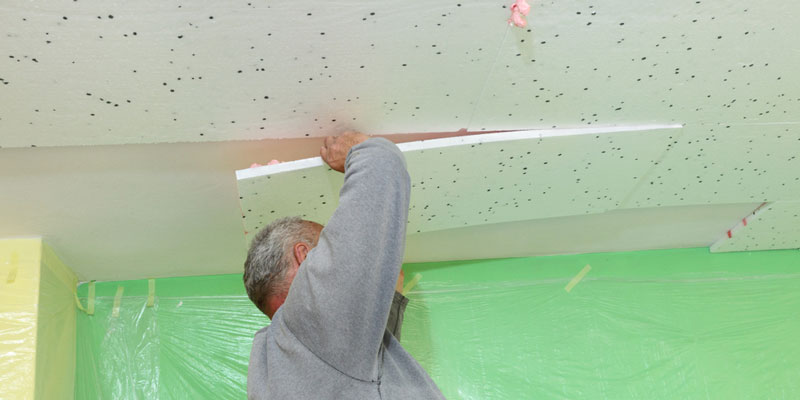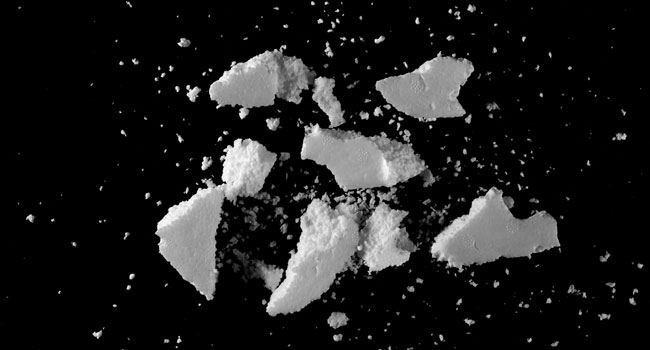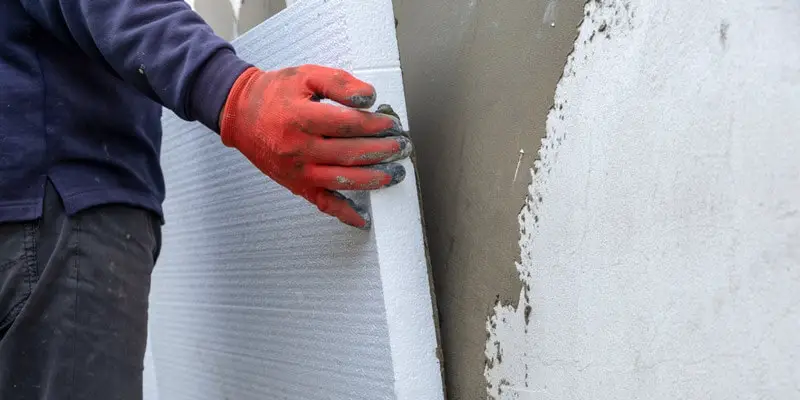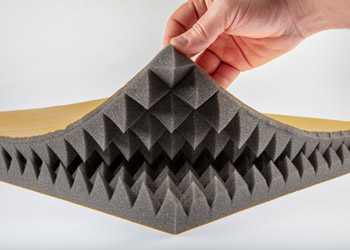Whether you want to keep the noise from traffic, lousy neighbors, and construction sites out, or maintain your house’s temperature, you need the best insulator.

So, this begs the question: is Styrofoam a good insulator for sound and heat?
Yes, it’s a solid thermal and soundproof insulator, which explains its wide application in crafting, transportation, construction, and engineering.
Hence, in this post, we’ll discuss what Styrofoam is, how this versatile material is made, and how good it is as an insulator.
What is Styrofoam?
Styrofoam is manufactured by Dow Chemical, which is a specific brand of polystyrene foam. This material is lightweight and used in several building materials, such as insulation sheathing or pipe insulation. Also, it’s perfect for soundproofing pipes.

Styrofoam, extruded polystyrene, is a practical insulator, lightweight, and excellent shock absorber. Plus, it comes in handy for serving and packaging food since it does not include lots of chemicals like the typical plastic, and it’s actually stronger.
On top of that, Styrofoam is preferred over plastic for major appliances such as ovens, air conditioners, and refrigerators. This affordable material is thicker and denser than other options, making it ideal for installation on your floor, wall, and ceiling to block sound and heat transfer.
Working Principle of a Good Insulator
The primary aim of insulation is to disrupt energy and heat flow. In simpler words, a good insulator is any material that limits the rate at which heat or sound is being transferred from one molecule to the next.
Basically, there are two types of insulation: thermal and acoustic insulation.
Thermal Insulation
Heat is transferred via one of three means – radiation, convection, and conduction. The latter involves the molecules of the medium colliding with one another; the convection method is based on the massive movement of air or water molecules, and radiation has to do with energy emission in the form of subatomic particles or EM waves.

Therefore, an excellent thermal insulator should be able to stop the transfer of heat when introduced between the heat source and the body. One of the main characteristics of a good insulator is poor heat conductivity.
Acoustic Insulation
Sound insulation isn’t very different from thermal insulation because of its basic principle. Sounds travel by vibrating the air molecules, and these vibrations are picked up by our ears and interpreted by our brains.

So like thermal insulation, an excellent soundproof material should obstruct or limit the transfer of the vibrations to ensure only a little or no signal reaches our ear. This way, they help keep sound out or within a room.
What is the R-Value of Styrofoam
The R-Value or Resistance Value measures a material’s ability to obstruct the flow of heat or sound energy. Materials with higher R-value offer more resistance to sound and heat transfer.
According to Wikipedia, expanded polystyrene (cheap Styrofoam) has an R-value between 0.65 to 0.70 depending on how dense the polystyrene is.
However, the extruded polystyrene, trademark styrofoam, from Dow Company offers a much higher R-value up to 0.95 depending on the density.
With cardboard’s R-Value anywhere between 0.52 to 0.70, choosing denser Styrofoam can offer more effective and reliable insulation from noise and heat. Keep in mind that you want the R-Value of the Styrofoam to be closer to 1 for better performance.
How Styrofoam Insulates
This product is mainly made of air, making it a poor thermal conductor but a great convector. The Styrofoam traps air in small pockets to prevent the easy flow of energy – heat or sound. This reduces the transmission of heat energy either by convection or conduction.
Unlike other good conductors such as air and glass, styrofoams are installed in wall cavities to keep your house or space warm. This is easily achieved by trapping air and minimizing heat transfer for optimal temperature within the building.
Where is Styrofoam Insulation Used?
In terms of home insulation, Styrofoam can be used almost anywhere from basements to floors, walls, roofs, ceilings, attics, etc. It doesn’t end there; this versatile insulator comes in handy for exterior and acoustic insulation.
More so, its application extends far beyond public buildings and home insulation. It’s perfect for creating the ideal conditions in freezers, refrigerators, cold industrial storage, and other appliances.
Another benefit of Styrofoam is its water-resistant properties and exceptional durability. Once installed, this insulation can serve your purpose for many years. Also, it’s environmentally friendly, which is a perfect choice for homeowners looking to minimize their footprint, thanks to their recyclable property.
Advantages of Using Styrofoam for Heat/Sound Insulation
As stated earlier, when it comes to one of the best insulation materials, you can’t go wrong choosing Styrofoam – and here are a couple of reasons you should:
- Affordable price point
- Environmental-friendly and recyclable
- Easy to carry and lightweight
- Moisture and water-resistant
- Impressive mechanical resistance for handling a lot of loads
- Superior durability to last more than 50 years with low conductivity
Styrofoam Alternatives
If you are open to other options besides Styrofoam, here are the decent insulator that can equally serve your purpose:
Greenslade
The Greenslade is your best bet for homeowners looking for a green alternative. It’s renewable and biodegradable. This material’s main element is created from mushrooms that have been shaped to be ideal for insulation – thanks to the perfect blend of agricultural bio-waste.
Cellulose
This option makes it to our list of the best styrofoam alternatives with eco-friendly characteristics. While it’s not commonly used, cellulose is a poor conductor of heat – making it an excellent thermal insulator.
Cellulose is mainly made of paper, cardboard, and other materials. It’s pretty similar to Styrofoam, which means it’s easy to carry – thanks to its lightweight design.
Fiberglass
If you are more considered about your safety and not looking to experiment, then the fiberglass might be what you’re looking for. It’s an excellent choice for people trying to insulate a house with unfinished walls.
Fiberglass is your go-to if your work area, home, or space is under construction. It’s easy to install, especially if you are a bit handy. Else, you can just hire a company to do the job for you.
Is plastic or Styrofoam a better insulator?
Plastic and Styrofoam are two common materials used for insulation, but which one is the better choice?
This question has sparked a significant debate among scientists and environmentalists alike. While both materials have their advantages and disadvantages, in terms of insulation properties, Styrofoam takes the lead. Its closed-cell structure creates air pockets that trap heat, making it an excellent insulator.
However, it’s important to consider the environmental impact of using Styrofoam as it is not biodegradable and can contribute to pollution. Ultimately, the decision between plastic and Styrofoam as an insulator depends on weighing their insulation capabilities against their ecological consequences.
So, Is Styrofoam a Good Insulator?
Yes, its physical structure limits the product’s ability to conduct heat by trapping the heat energy in the millions of tiny air bubbles present in the material. This way, heat cannot be transferred easily through convection or conduction.
All in all, Styrofoam is a great choice for wall and basement, roof and floor, insulating concrete forms, exterior insulation & finish systems, and sound impact & acoustics.
